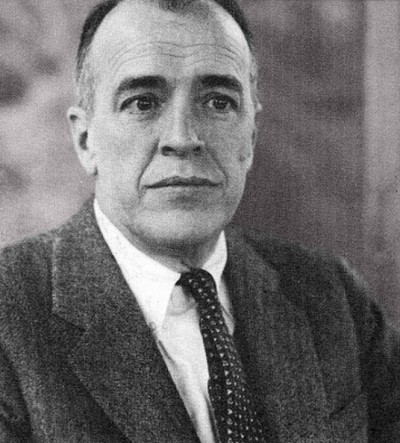
One of the most influential novelists of the American South, the novelist Eudora Welty was a lifelong correspondent and friend of the writer and editor, William Maxwell. At the time of this letter’s writing, Maxwell was fiction editor of The New Yorker (a position he held for nearly forty years) and was writing to compliment Welty on a short story she had written (with surprising speed) about the June 1963 assassination of NAACP field secretary Medgar Evers. The pair edited the story, entitled “Where Is the Voice Coming From,” over the phone before it was published in the July 6, 1963 issue of The New Yorker. In the letter, Maxwell refers to his wife, Emmy, as well as his daughters, Brookie and Kate.
July 1963
Dear Eudora:
I thought you might want a copy of the story the way you wrote it, so here it is. Nothing but praise. Emmy shook her head in wonder at it, and Mr. [William] Shawn stopped me in the hall to ask if I had talked to you and I said, “Yes, four times,” and he said, “Does she know how good it is?” I expect you do, somewhere, if not exactly on top of your mind. Being brought up the way we were, it has to be that way.
I left home this morning in the midst of What is the Matter with Mary Jane. Brookie, who loves play camp, refused to get ready to go and was sulking, and Emmy didn’t have time to find out why because she had to rush Kate to the riding stable and get back in time to take Brookie and the Katz children to play camp, and as I walked past the bedroom door, I heard her saying in exasperation (see the N.Y. Times report of the weather—in New York) “Very well, I’ll take the Katz children to camp and you can stay home with Ivy.” Ivy is Jamaican, and very black, and beautiful (only Brookie doesn’t know it), and children aren’t her strong point, though she has two (but left ‘em in Jamaica), and every Monday night goes to beautician’s school, and is among Brooke’s undigested experiences, so I dare say she went to play school. So does life promote character, along with Anglo-Saxon attitudes.
Love,
Bill
P.S. I started to read [Joseph Conrad’s] “The Duel” and stopped after 6 pages, because it has to be read aloud to Emmy, when I can get her undivided attention, which will be August 1st, or thereabouts. It simply undid me, from the start.
From What There is to Say We Have Said: The Correspondence of Eudora Welty and William Maxwell. Edited by Suzanne Marrs. New York: Houghton Mifflin Harcourt, 2011. pp. 165-166.
FURTHER READING
Read an early draft, potentially the first, of “Where Is the Voice Coming From?” published by the Mississippi Department of Archives and History in June 2013.
Read an essay at The New Yorker about Eudora Welty’s writing of “Where Is the Voice Coming From?” and her reaction to the Medgar Evers murder, as well as the modern task of writing about racial hatred.
Listen to an interview with William Maxwell recorded near the end of his life and archived by NPR.


